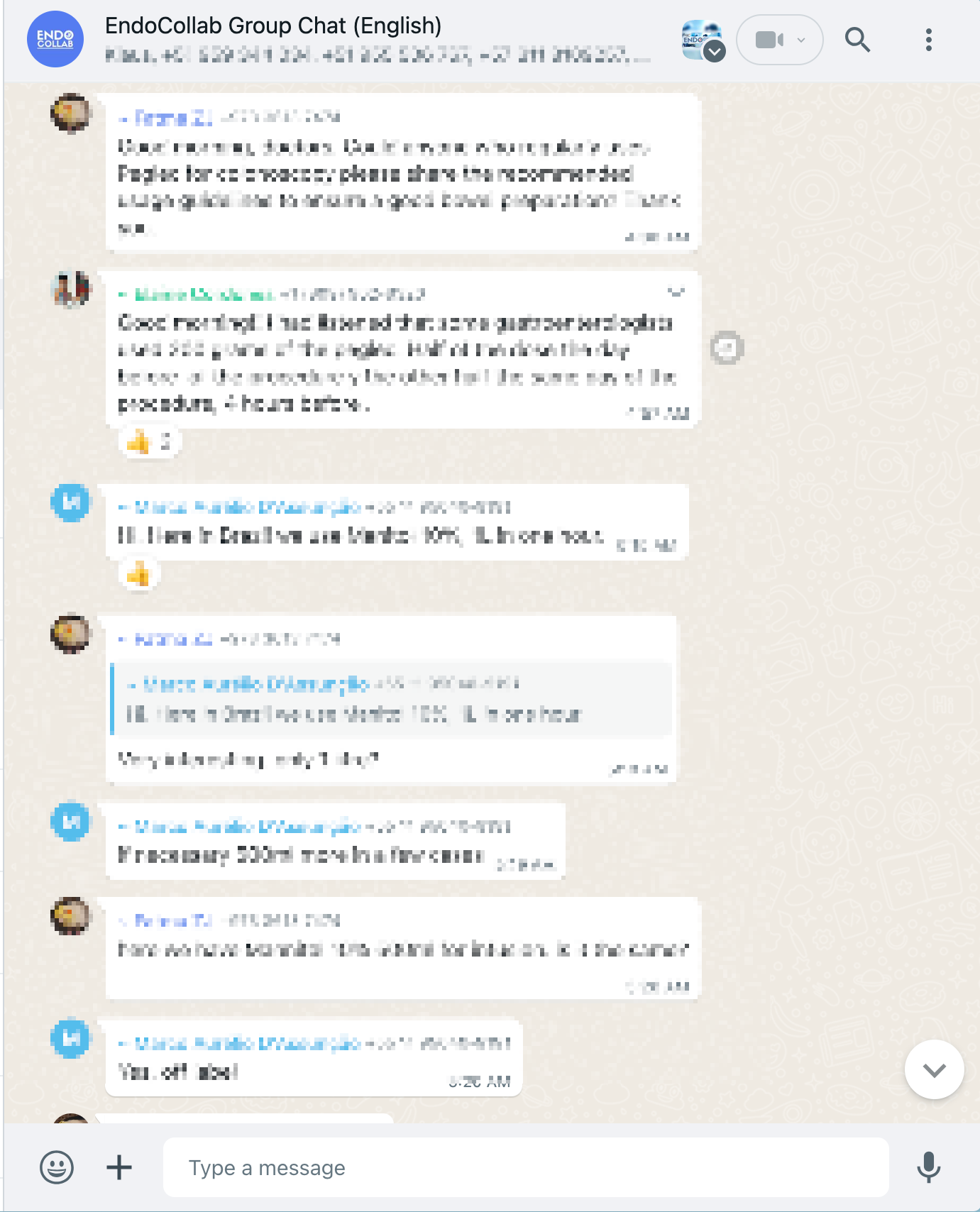EndoCollab Updates: October
"VS" Lesion, Watermelon Stomach, & EGC Case Reviews from EndoCollab
Recent EndoCollab discussions covered a range of topics, from challenging endoscopic cases and therapeutic techniques to equipment recommendations.
Here's a summary:
Cases and Diagnostics:
Antral Unhealthy Mucosa: A case of a 41-year-old male with significant weight loss and intermittent epigastric pain was presented. Endoscopic images showcasing a "VS" lesion pattern were shared, prompting discussion of potential diagnoses. Biopsy results are pending. Link to Post
Watermelon Stomach: This case presentation highlighted the characteristic endoscopic appearance of this condition. Link to Post
EGC in a patient with H. pylori infection: This case discussed a patient with H. pylori infection who underwent ESD for a lesion. The pathology revealed well to moderately differentiated adenocarcinoma, T1a-LPM, with clear margins. Link to Post
Endoscopic Therapy and Techniques:
Endoscopic Therapy for Bleeding Gastroesophageal Varix (GOV 2): A detailed case review of a 45-year-old woman with cirrhosis presenting with hematemesis. The post outlines key steps for effective endoscopic hemostasis of GOV 2, including precise varix localization, careful retroflexion, and the use of endoscopic band ligation (EBL). The importance of recognizing the "nipple" sign was also emphasized. Link to Post
Endoscopic Therapy for Bleeding Jejunal Diverticulum: A 70-year-old man presented with hematochezia. CTA revealed active bleeding in the mid-jejunum. Single balloon enteroscopy identified a bleeding ulcer within a jejunal diverticulum, which was successfully treated with endoscopic clips. Tips and tricks for approaching jejunal diverticula were shared, including identifying subtle mucosal clues and optimizing scope positioning for effective treatment. Link to Post
Equipment and Tools:
Injection Needle Recommendation: A specific injection needle, the "Needle Master," was highlighted for its utility in creating submucosal cushions. Its features, including a short exposed needle tip, triple bevel tip, and optimal gauge, were discussed. Link to Post
WhatsApp Group Weekly Summary: Discussion on Bowel Preparation for Colonoscopy
This week, a lively discussion unfolded regarding optimal bowel preparation for colonoscopy, with various protocols and regional preferences shared.
PEG/Polyethylene Glycol (Peglec): A member inquired about recommended usage guidelines for Peglec. One suggested approach involved splitting a 300g dose, with half administered the day before the procedure and the remaining half four hours prior.
Mannitol: A Brazilian physician detailed their protocol utilizing 1L of 10% Mannitol administered over one hour, with an additional 500ml in certain cases. The method involves drinking one glass every 10 minutes. This prompted further discussion and confirmation that the preparation is indeed Mannitol 10%.
Sodium, Potassium, and Magnesium Sulphates: Another gastroenterologist shared their preference for a combination of sodium, potassium, and magnesium sulphates, considering it superior to PEG. The specific product name "Coloprep" was later provided, with a typical administration involving back-to-back bottles on the morning of the procedure, resulting in bowel preparation within 5-7 hours. A split-dose regimen was recommended for cases with suspected colonic or small bowel narrowing.
Pediatric Considerations: A protocol for pediatric patients (4 months to 2 years) involving a 2-day low-fiber diet, Mannitol, enema, and bisacodyl was also shared.
This discussion highlighted the diversity of bowel preparation practices globally, emphasizing the importance of tailoring the approach based on patient factors and regional availability of preparations.
Next Steps:
Join EndoCollab: EndoCollab is your go-to platform for advancing your skills in gastroenterology and endoscopy. Gain access to exclusive content from top practitioners to enhance your practice.
Membership Features:
Video lessons on essential and advanced techniques.
Expert-led classes and practical tips.
Community-driven insights and peer discussions.
Join 1,500+ healthcare professionals taking their expertise to the next level.
Join the WhatsApp Group: An exclusive WhatsApp group for gastroenterologists and endoscopists. Connect with leading experts, discuss challenging cases, and stay ahead with the latest in clinical research and best practices. This group is your gateway to a vibrant community of like-minded professionals committed to advancing GI care.
Join the WhatsApp group today



